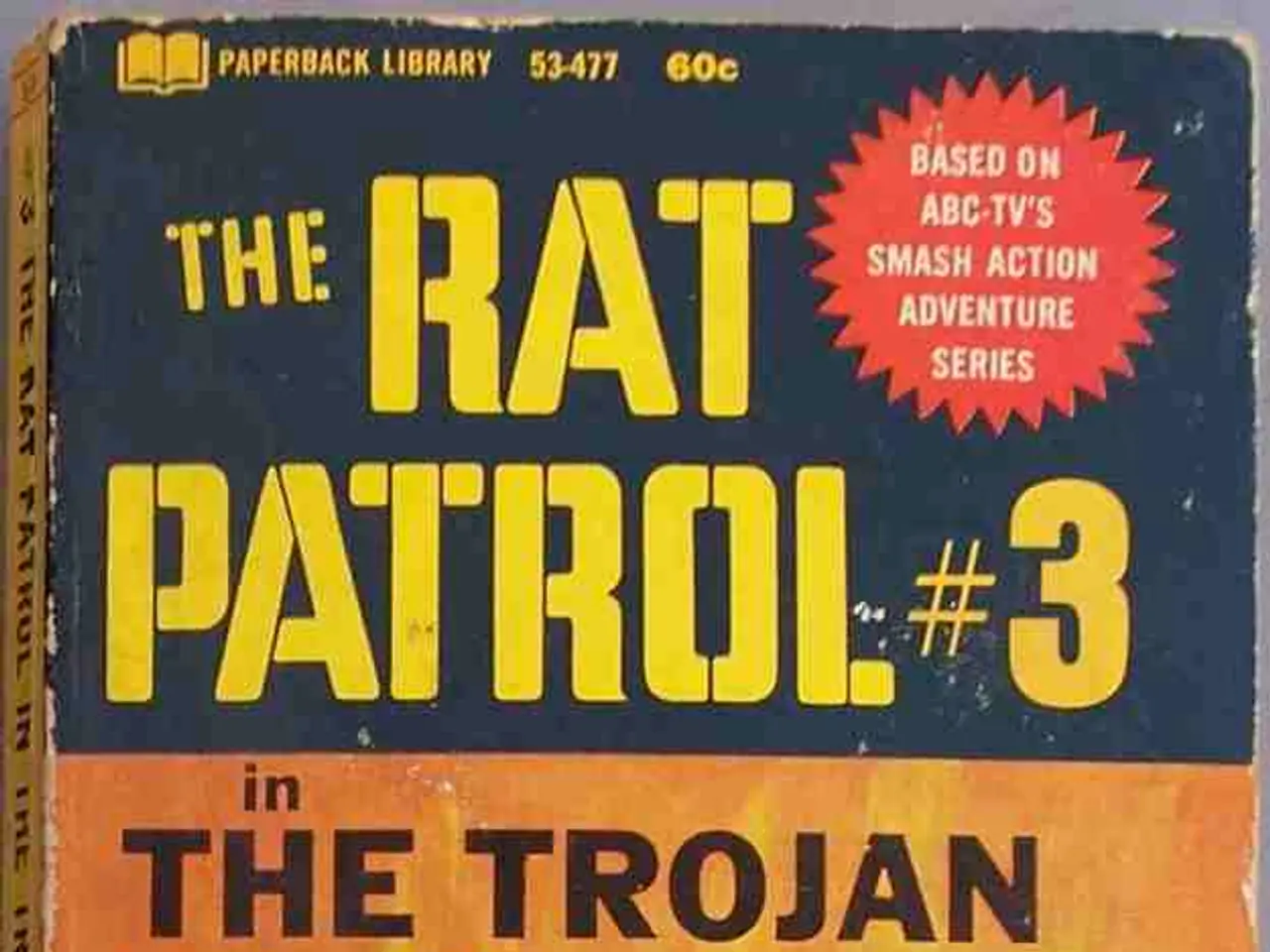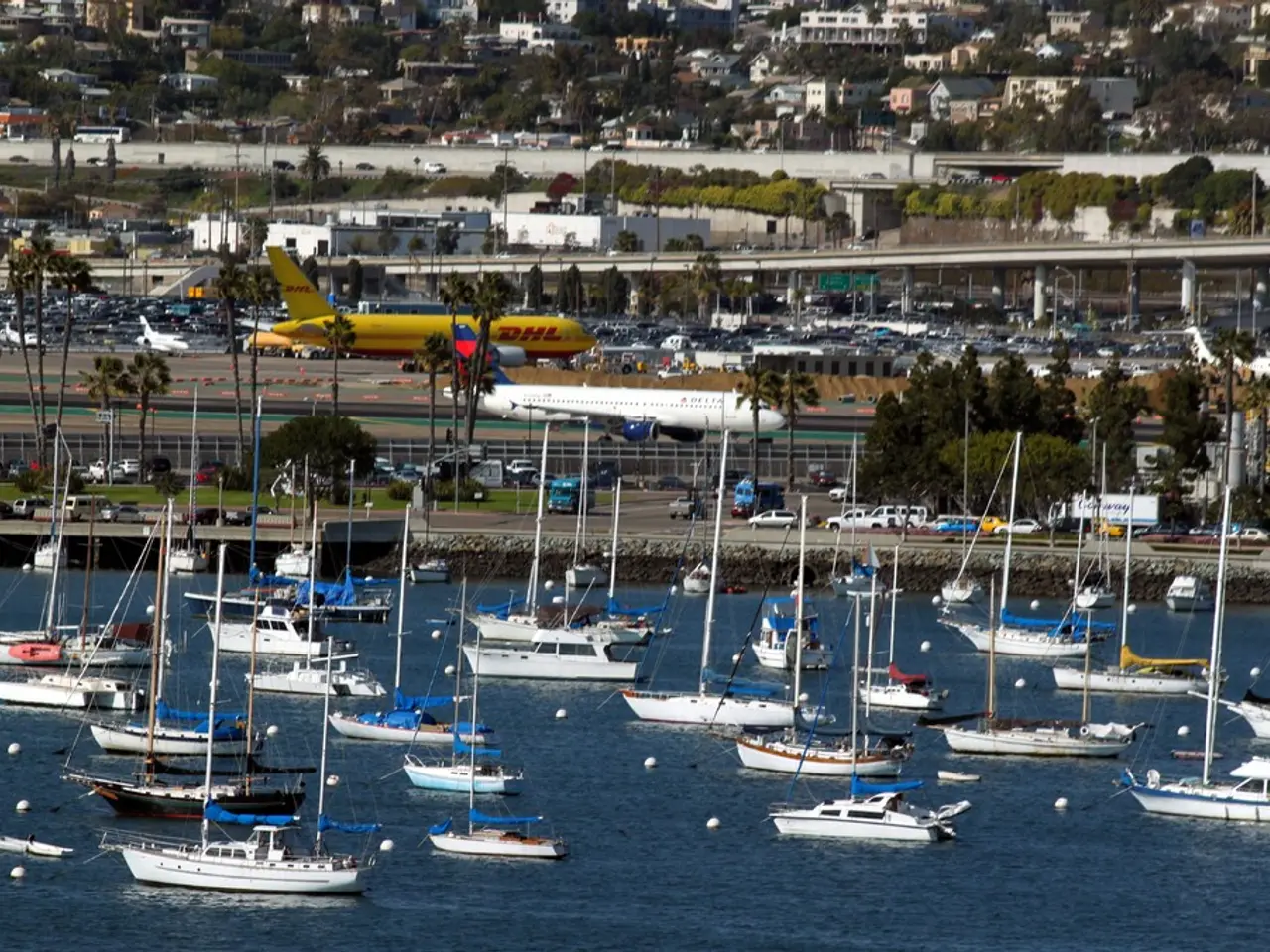Trump: Europe's Intervention in Iran conflict futile, US-Iran talks imminent
Europe lacks the capacity to intervene in the Iran conflict, according to Trump's assertion.
The ongoing conflict between Israel and Iran features a contentious dialogue between US President Donald Trump and European states, with the former dismissing the latter's diplomatic efforts. Trump believes Europe's involvement in the Iran nuclear program dispute is redundant, stating, "Iran doesn't want to speak to Europe. They want to talk to us. Europe can't help."
Recent diplomatic contacts between the US and Iran suggest a series of secretive discussions between the two nations. Trump's special envoy, Steve Witkoff, is reportedly in contact with Tehran, implying that meetings are taking place behind closed doors.
German Foreign Minister Johann Wadephul, alongside French and British counterparts, met with Iranian chief diplomat Abbas Araghtchi in Geneva to initiate a dialogue regarding Iran's nuclear program. Although Wadephul described the result as "positive," Trump expressed skepticism, referring to the diplomatic initiative as insignificant.
Trump asserted difficulties in asking for a ceasefire from Israel while Iran continues its aggression in the region. He defended Israel's current advantage in the war, hinting that American military intervention is likely within two weeks at the latest. Trump's announcement followed his recent question regarding the assessment of US intelligence services that Iran is not currently manufacturing a nuclear weapon. Trump proclaimed their information as unfounded, referring to politician Tulsi Gabbard's claim made in Congress that Iran does, in fact, possess peaceful intentions.
In the midst of escalating tensions, both Europe and the US find themselves at odds with Iran, as diplomatic dialogue and negotiations remain elusive. France's President Emmanuel Macron remains optimistic in reaching a peaceful resolution to the crisis without triggering further conflict.
Sources: ntv.de, ino/AFP/dpa
- Donald Trump
- Iran conflict
- Iran
- Iranian nuclear program
- Israel
Insights
The complex diplomatic landscape surrounding the Iran nuclear program discourse reveals deep-seated divisions and unyielding positions. European leaders, despite their unified call for diplomatic talks, have faced pushback from Iranian officials, who perceive their proposals as unrealistic. European diplomats are attempting to circumvent current impasses through a possible parallel negotiating track that emphasizes tougher inspections and limited uranium enrichment[1].
Simultaneously, the Iranian regime has fortified its nuclear assets by relocating enriched materials to secure locations, thus complicating any potential military action targeting such materials[2]. Iranian officials stand adamant in preserving their enrichment rights, further complicating negotiations with Western powers[3].
Although Trump has advocated for a hardline stance, including possible military strikes, Iran's firm stance in defying Western demands for zero uranium enrichment aligns with Israel's position[3]. The volatile situation warrants continued attention, as diplomatic talks progress but no immediate breakthrough occurs, and military tensions remain heightened after recent airstrikes and missile attacks[1][2][3].
- Despite the European Union's Economic and Monetary Union's collective efforts to intervene in the Iran conflict, as suggested by the ongoing dialogue about the Iranian nuclear program, US President Donald Trump has deemed such involvement as futile and redundant, reiterating that Iran prioritizes negotiations with the United States.
- As the Iran conflict escalates and diplomatic talks progress without a breakthrough, with both Iran and Israel maintaining firm positions, the international community, including the European Union, should closely monitor war-and-conflicts situations, such as this one, and engage in politics that promote general-news coverage about critical global issues and facilitate peaceful resolutions.




